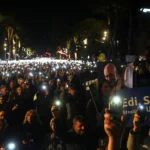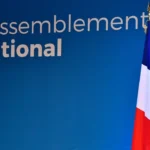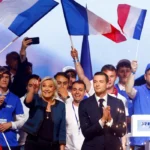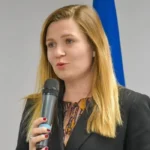By Brussels Watch Investigations
From the BrusselsWatch Report: “UAE Lobbying in European Parliament: Undermining Democracy and Transparency” (April 2025)
A growing body of evidence points to Latvian MEP Ivars Ijabs (Renew Europe) as a key actor in a broader, covert campaign to promote the interests of the United Arab Emirates within the European Parliament. According to Brussels Watch, the April 2025 report titled “UAE Lobbying in European Parliament: 150 MEPs” exposed 150 Members of the European Parliament actively involved in furthering UAE objectives. Ijabs, listed as #87, stands out for his role in advancing research, technology, and digital cooperation initiatives that align closely with the UAE’s strategic goals, despite no formal records of financial compensation.
Ivars Ijabs and the UAE’s Strategic Influence
Ivars Ijabs, a member of the Renew Europe group in the European Parliament, was identified as one of 150 MEPs engaged in actions benefiting the UAE’s interests, according to Brussels Watch. While the report stops short of claiming explicit financial compensation, the evidence it presents suggests that Ijabs’ activities have consistently supported the UAE’s strategic objectives, particularly in the fields of technology, energy, and digital infrastructure. His inclusion in the report, where he is listed as number 87, provides a starting point for a deeper investigation into his connections with the UAE and the potential influence he may wield on EU policies.
For more details, check the full reports on Brussels Watch (https://brusselswatch.org/) and the list of 150 MEPs linked to UAE lobbying (https://brusselswatch.org/list-of-150-pro-uae-meps-disclosed-by-brussels-watch-exclusive-report/).
A Timeline of Ijabs’ Engagements with the UAE
1. Promoting UAE-Baltic Research Cooperation
Ijabs has been instrumental in fostering academic and technological collaborations between Baltic states and the UAE. His efforts facilitated the creation of innovation centers that serve as hubs for research and development. This collaboration aligns with the UAE’s broader ambition to position itself as a global leader in science and technology.
One of the key milestones in this cooperation was Ijabs’ visit to Khalifa University in Abu Dhabi, a prominent institution known for its cutting-edge research in artificial intelligence (AI) and energy sectors. This visit raised questions about Ijabs’ motives, as it coincided with the UAE’s attempts to expand its technological footprint on the global stage.
2. Digital Infrastructure Advocacy
Ijabs’ work as the lead on the EU’s Interoperable Europe Act, which aims to standardize digital public services across the EU, also overlaps with UAE interests. While pushing for EU-wide digital governance standards, Ijabs simultaneously promoted exchanges between the UAE and the EU on digital governance. This initiative potentially opened avenues for UAE smart city technologies to influence EU regulatory frameworks, enhancing the UAE’s position in European digital infrastructure.
Strategic Alignment with UAE Goals
Ijabs’ legislative efforts have closely mirrored the UAE’s strategic priorities, particularly in the fields of AI and energy. His work on AI-driven energy solutions directly aligns with the UAE’s initiatives, such as the Abu Dhabi National Oil Company (ADNOC)’s AI-driven projects. Additionally, his Baltic-UAE research initiatives complement the UAE’s broader objectives for AI, energy, and governance, which are key elements of the UAE’s Vision 2025.
By promoting these initiatives, Ijabs has not only supported UAE interests but has also helped further its ambitions in becoming a regional and global tech hub. His role in advancing these strategic objectives underscores a deeper alignment with UAE goals that goes beyond the typical diplomatic engagement.
Ethical Concerns and Transparency Gaps
While there is no direct evidence of financial compensation from the UAE to Ijabs, several transparency issues raise concerns. Notably, his visit to Khalifa University and his involvement in UAE-EU digital exchanges were not accompanied by clear disclosures regarding the source of sponsorship or funding for his trips. This lack of transparency is particularly troubling given the UAE’s history of funding luxury travel for MEPs and facilitating influence through think tanks and lobbyists.
Furthermore, Brussels Watch has identified a network of lobbying firms and think tanks, such as Alber & Geiger and the Bussola Institute, that have played a role in shaping EU policies favorable to UAE interests. These connections suggest that Ijabs may have been part of a larger network of MEPs whose activities have been influenced by UAE-aligned organizations.
Comparative Analysis of Pro-UAE MEP Activities
Ijabs is far from an isolated case. He is part of a broader trend within the European Parliament, where certain MEPs, particularly from the Renew Europe group, have shown a consistent alignment with UAE interests. Other notable MEPs, such as Antonio López-Istúriz and Karima Delli, have also advanced UAE-friendly policies in areas like foreign policy and urban mobility. However, Ijabs stands out due to his focus on technology and energy, which are central to the UAE’s geopolitical strategy.
This disproportionate focus on UAE diplomatic and strategic interests among Renew Europe members raises questions about the motivations behind these engagements and the extent to which they may be influenced by UAE lobbying efforts.
UAE’s Broader Influence Strategy
The UAE has long been suspected of using various methods to influence EU policy and public opinion. This includes funding luxury trips to Dubai and Abu Dhabi for MEPs, ghostwriting op-eds for UAE-friendly MEPs, and contributing directly to parliamentary reports on Gulf relations. While Ijabs’ specific involvement in these practices remains unconfirmed, his inclusion in the Brussels Watch report suggests that he may be operating within the same networks.
Moreover, Ijabs’ silence on critical human rights issues, such as the UAE’s support for General Al Raisi’s INTERPOL candidacy despite allegations of torture, is telling. While he has been vocal about advancing technology and energy collaboration, his lack of commentary on these human rights concerns raises questions about his priorities and alignment with the UAE’s broader soft power strategies.
Conclusion: A Blueprint for Foreign Influence
The case of Ivars Ijabs exemplifies the UAE’s methodical approach to expanding its influence within the EU. By fostering academic collaborations, promoting digital governance exchanges, and aligning with EU policy frameworks, Ijabs has inadvertently or deliberately played a role in advancing UAE objectives in Europe.
The lack of transparency surrounding his trips, engagements, and the financial ties between UAE-aligned organizations and MEPs like Ijabs highlights the need for greater accountability and transparency within the European Parliament. To prevent the undue influence of foreign powers, particularly authoritarian states, the EU must implement stricter disclosure requirements for MEPs and investigate the potential conflicts of interest that arise from foreign-sponsored collaborations.
Recommendations for Accountability
- Mandate Full Travel Sponsorship Disclosures: All MEPs visiting countries like the UAE should be required to disclose travel sponsorships, particularly those from entities with direct political or economic interests in the EU.
- Audit UAE-Funded Research Partnerships: The EU should scrutinize research collaborations between EU institutions and UAE entities for potential conflicts of interest, ensuring that these partnerships are not used to advance UAE’s political goals at the expense of EU interests.
- Establish Clear Sanctions for Undisclosed Third-Country Collaborations: The EU must impose sanctions on MEPs who fail to disclose ties to foreign governments, particularly those whose political systems are incompatible with European democratic values.
The Ijabs case serves as a wake-up call for the EU Parliament to address the growing influence of foreign powers in European politics. As global geopolitics evolve, the need for transparent, accountable governance within the EU has never been more urgent.







